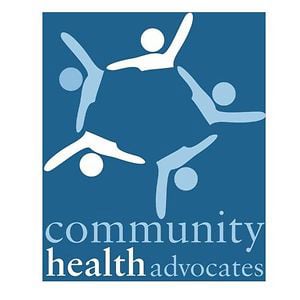- Education Topics
- Achievement Gap
- Alternative Education
- American Education Awards
- Assessment & Evaluation
- Education during COVID-19
- Education Economics
- Education Environment
- Education in the United States during COVID-19
- Education Issues
- Education Policy
- Education Psychology
- Education Scandals and Controversies
- Education Reform
- Education Theory
- Education Worldwide
- Educational Leadership
- Educational Philosophy
- Educational Research
- Educational Technology
- Federal Education Legislation
- Higher Education Worldwide
- Homeless Education
- Homeschooling in the United States
- Migrant Education
- Neglected/Deliquent Students
- Pedagogy
- Sociology of Education
- Special Needs
- National Directories
- After School Programs
- Alternative Schools
- The Arts
- At-Risk Students
- Camps
- Camp Services
- Colleges & Universities
- Counties
- Driving Schools
- Educational Businesses
- Financial Aid
- Higher Education
- International Programs
- Jewish Community Centers
- K-12 Schools
- Language Studies
- Libraries
- Organizations
- Preschools
- Professional Development
- Prom Services
- School Assemblies
- School Districts
- School Field Trips
- School Health
- School Supplies
- School Travel
- School Vendors
- Schools Worldwide
- Special Education
- Special Needs
- Study Abroad
- Teaching Abroad
- Volunteer Programs
- Youth Sports
- For Schools
- Academic Standards
- Assembly Programs
- Blue Ribbon Schools Program
- Educational Accreditation
- Educational Television Channels
- Education in the United States
- History of Education in the United States
- Reading Education in the U.S.
- School Grades
- School Meal Programs
- School Types
- School Uniforms
- Special Education in the United States
- Systems of Formal Education
- U.S. Education Legislation
- For Teachers
- Academic Dishonesty
- Childcare State Licensing Requirements
- Classroom Management
- Education Subjects
- Educational Practices
- Interdisciplinary Teaching
- Job and Interview Tips
- Lesson Plans | Grades
- Professional Development
- State Curriculum Standards
- Substitute Teaching
- Teacher Salary
- Teacher Training Programs
- Teaching Methods
- Training and Certification
- For Students
- Academic Competitions
- Admissions Testing
- At-Risk Students
- Career Planning
- College Admissions
- Drivers License
- Educational Programs
- Educational Television
- High School Dropouts
- Higher Education
- School Health
- Senior Proms
- Sex Education
- Standardized Testing
- Student Financial Aid
- Student Television Stations
- Summer Learning Loss
Community Health Advocates

Basic Information
Address: Community Service Society
633 Third Avenue
10th Floor
New York, NY 10017
Email: cha@cssny.org
Additional Information
Causes Served: Health Advocacy, Health Insurance, Consumer Education
Population Served: New York State
Ages for Volunteer: 21+
Hours of Service: 8/week
Minimum Hours Required: 8/week for six months
Days of Service: Monday-Friday
Mission Statement:
The Community Service Society’s Community Health Advocates (CHA) program helps New Yorkers use and keep their health insurance and access affordable health care. In order to assist New York health insurance consumers, CHA runs a toll-free statewide helpline to provide direct one-on-one assistance to individuals and families. Our volunteers do intake for all callers, answering questions, advocating with third parties, and assisting all New Yorkers whether on Medicaid, Medicare, private insurance, or uninsured.
Program History:
In October 2010, the Community Service Society of New York received federal funding to expand its services to all of New York State as a provision of health care reform, the Affordable Care Act. Community Health Advocates (CHA) was designated as the state's consumer assistance program for health insurance, and now offers assistance in more than 170 languages and continues to expand its reach into high-need communities throughout the State. In October 2011, CHA became funded under the New York State Exchange Establishment grant and added five more locally-based organizations to better meet the needs of New Yorkers around the State. Since the 2015 fiscal year, with the support of the Assembly and the Executive, CHA has been funded through the State of New York.
Tags: helpline, Health Insurance, HEALTH, consumer education, advocacy

